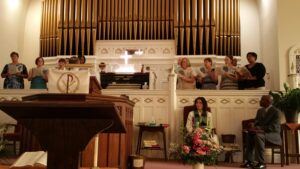[acx_slideshow name=”December 2015a”]
Faith Congregational Church, a vibrant, inclusive Christian community working for social justice through service to God, each other and our neighbors.

Who We Are – Where We Are Going – What We Believe!
We Celebrate Diversity
We are a church that welcomes all (and we do mean all)! No matter who you are and where you may be on life’s journey, you are welcome at Faith Congregational Church. We work toward celebrating all people, young and old, Black, Brown and White, gay and straight, rich and poor; whomever God sends we will seek to embrace.
We Celebrate Community
We are a church faith community that embraces the wider community and seeks to serve in ways we can. Faith Church is a place where the community can come to talk, to work, to grow. We will be part of the solution seeking to address community concerns. We will work for justice, not just us.
We Celebrate Jesus
We will celebrate the presence of Jesus Christ in our lives. We will never apologize for our love of Jesus Christ, but will celebrate the faith of others and even those with no faith. For us Jesus is the way, the truth and the life. We will invite others to know Jesus and will share the love of Christ whenever and wherever we can.

Monday – Wednesday 9:00 – noon
Faith-Based Community Events have been moved to the news & Events Tab. Check out what’s happening in and around Hartford’s religious community.
From the Pastor’s Study
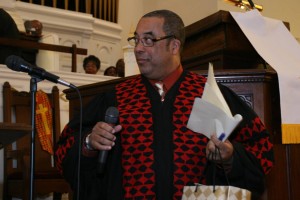
Members and friends,
With so much going on in our nation and around the world, it is right that we remind ourselves that we are not isolated or exempt from the injustices we see around us. We at Faith should take offence at the harsh and often mean spirited rhetoric that comes forth from people, many in high places or seeking to lead. Friends, another world is possible if we all work for justice.
Join us each Sunday during Advent 2015. New Members class will be on 2nd Sunday after church for any interested in exploring membership with Faith Church. The class lasts an hour and provides great information. See any deacon for details.
Please plan to be present for the MLK celebration on January 18. The dynamic Rev. Dr. Susan K Smith from Columbus, Ohio will be our speaker.

Black History Month will be very special this year. We will focus on women’s health and cancer. Stay tuned for more information.
Be Blessed! Pastor Steve
Isaiah 43:1-7 The Message (MSG)
When You’re Between a Rock and a Hard Place
43 1-4 But now, God’s Message,
the God who made you in the first place, Jacob,
the One who got you started, Israel:
“Don’t be afraid, I’ve redeemed you.
I’ve called your name. You’re mine.
When you’re in over your head, I’ll be there with you.
When you’re in rough waters, you will not go down.
When you’re between a rock and a hard place,
it won’t be a dead end—
Because I am God, your personal God,
The Holy of Israel, your Savior.
I paid a huge price for you:
all of Egypt, with rich Cush and Seba thrown in!
That’s how much you mean to me!
That’s how much I love you!
I’d sell off the whole world to get you back,
trade the creation just for you.
5-7 “So don’t be afraid: I’m with you.
I’ll round up all your scattered children,
pull them in from east and west.
I’ll send orders north and south:
‘Send them back.
Return my sons from distant lands,
my daughters from faraway places.
I want them back, every last one who bears my name,
every man, woman, and child
Whom I created for my glory,
yes, personally formed and made each one.’”
"IF white Christians acted more Christian than white, black parents would have less fear for their children.” ~ Jim Wallis
How Tiny Congregations Survive And Thrive Despite The Odds
Congregations with fewer than 100 in weekend attendance are on the rise.
01/05/2016 01:56 pm ET
Cathy Lynn Grossman
Religion News Service
Matt Lucarelli, courtesy of First Church
Pastor Robin Bartlett, far right, conducts a new-member ceremony at First Church in Sterling, Mass.
Hope, by nature, is defiant, counterintuitive and lodged in surprising places.
So a new report detailing the spiritual, demographic and financial challenges faced by small religious congregations meant little to the Rev. Robin Bartlett.
She plants her hopes for First Church in Sterling, Mass., on firmer ground.
“This does not look like a dying and sad church. It looks like a vibrant and active church on a Sunday morning,” said Bartlett, who usually sees 130 people on Sundays, even though the sanctuary was built for the days when more than 300 came to worship.
Just this year, 30 new members have joined, including young adults such as Ann Taft, 28, who delighted in the warm welcome at First Church: “Everyone was just so excited that I was there.”
More people in the pews, more energy for programs, more funds to maintain the roof — these are all keys to survival for such small congregations, according to the latest Faith Communities Today report, released Monday (Jan. 4) by the Hartford Institute for Religion Research.
ALL POSTS HAVE BEEN MOVED FROM THIS PAGE TO THE JUST SAYIN’ TAB . CHECK OUT THIS WEEK’S STORIES AND COMMENTARY.

Men’s Ministry Monday evenings @ 5:30pm Calling All Men!!!
Thank you from the Men’s Ministry:
To all our sisters and brothers who donated gift cards, cash, games and toys, please accept our deepest gratitude for your supporting our 20125 Christmas gift drive. Even with the delay in our receiving the list of children, you came through in a BIG way. Our original goal was to support 25 children from SAND school. Though your generosity we were able to present gift cards to 36 children and additionally, we also received toys and games for our church nursery. Again, thank you for your generosity.
Thanksgiving/Christmas Stewardship/Women’s ministry FCC Pie fundraiser. Thank God and thank you to all who supported our pie sale. (Buying, Selling, Eating) We have received a few donations to help us reach our goal of $1000!!! A special thank you to Deacon Wendy Nixon, Olga Callender, and Regina Wilson for their help and support throughout the event. Thanks to Rev. Gaither, Josiah, Deacon Al, and Sexton Nathaniel. –Steward Alice Lumpkin

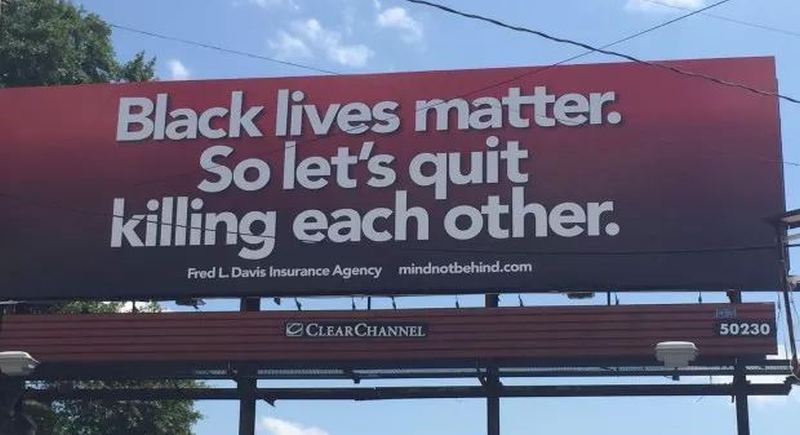
Dear Rev. Camp,
I hope all is well and that you had a wonderful holiday season. I am writing to inform you of opportunity to provide youth from Hartford, ages 5 to 9, with free swim lessons at the Downtown YMCA. The program is designed to mitigate youth drowning and promote physical activity. For your reference, I have attached a flyer for the upcoming session (lessons will actually begin on Monday, January 11th); subsequent sessions will be offered later this winter and throughout the spring. Our goal is to serve 500 youth from Hartford by the end of this summer.
We are hopeful that you are able to share this opportunity with your parishioners. I have copied Deirdre Brickhouse, aquatics director for the Downtown YMCA, on this email. If you believe this may be of interest to members of your church, Deirdre can provide you with registration forms and additional information.
Jeff Williams
241 Trumbull Street, Hartford, CT 06103
(P) 860 522 9622 ext 2302 (F) 860 522 1314
(E) jeff.williams@ghymca.org (W) ghYMCA.org
African-Americans and Heart Disease, Stroke

Heart disease is the No. 1 killer for all Americans, and stroke is also a leading cause of death. As frightening as those statistics are the risks of getting those diseases are even higher for African-Americans.
The good news is, African-Americans can improve their odds of preventing and beating these diseases by understanding the risks and taking simple steps to address them.
“Get checked, then work with your medical professional on your specific risk factors and the things that you need to do to take care of your personal health,” said Winston Gandy, M.D., a cardiologist and chief medical marketing officer with the Piedmont Heart Institute in Atlanta and a volunteer with the American Heart Association.
High blood pressure, obesity and diabetes are the most common conditions that increase the risk of heart disease and stroke. Here’s how they affect African-Americans and some tips to lower your risk. Read more here.
The post below is from http://www.blackwomenshealth.com/
It’s Time To Take Care of Ourselves
This past weekend I met a lovely, dynamic, 45-year-old African American woman at a baby christening. She is a classic example of the mother, sister, wife, girlfriend, superwoman who is well known, respected and indeed, is the backbone of our community. This woman is very well educated, a conservatory trained vocalist and performer, and she is active in her church’s music ministry. She is a wife, mother of a teenage son, and a dedicated teacher in the public school system. Upon engaging this woman in conversation it quickly became apparent that this sister who does so much for so many was seriously neglecting her OWN health. She has not had a routine Pap smear in 5 years, nor has she ever had a screening mammogram. She is also overweight and suffers from sleep apnea as a consequence. Medically speaking, she is taking an extreme risk with her life.
Screening for Cervical Cancer Is Important
Major strides have been made in the area of cervical cancer screening, diagnoses and treatment. In short, no woman need ever die of cervical cancer. A simple yearly Pap smear can detect abnormalities in the cells of the cervix that can be easily treated long before they progress to cancer. The average amount of time it takes for abnormal cervical cells to progress to invasive cancer is approximately 5 years. By neglecting to have a Pap smear performed for five consecutive years my friend had clearly put herself at risk for developing advanced cervical cancer and eventually losing her uterus and cervix , or even her life. As gynecologists, we recommend that all women who are sexually active or who have reached 18 years of age should have a yearly Pap smear. If a woman has no history of abnormal Pap smears, and has had normal Pap smears for three consecutive years, she can discuss having less frequent testing with her gynecologist.
Mammograms Help Detect Breast Cancer
Likewise, a mammogram is a simple, painless, five-minute x-ray of the breasts that can in many cases detect breast cancer years before a lump can be felt. It is not sufficient that a woman merely does a monthly self-breast examination. All women should have a baseline screening mammogram between the ages of 35 and 40, followed by yearly mammograms after age 40. This screening process should begin earlier in patients with a family history of breast cancer. . Though breast cancer is more common in Caucasian women, African-American women are much more likely to die from it than White women are. This is simply because in women of color, the cancer tends to be diagnosed after it has already spread and is no longer “curable”. Similarly African American women are over represented in the number of women who die of cervical, uterine and ovarian and colon cancer.
To further illustrate this point, my 63-year-old mother was diagnosed with early invasive breast cancer by a routine screening mammogram only 2 months ago. At that time, there was absolutely NO LUMP to be felt in her breast. She subsequently had surgery in which the cancerous area, along with some sample lymph nodes, was removed. Because the cancer was detected early, it had not yet spread beyond a small area of the breast or to the lymph nodes. Consequently, her breast was saved, she does not have to undergo chemotherapy, and her chances of a complete cure are great. Although she has no family history of breast cancer, my Mother religiously goes for her yearly mammograms. Last year’s mammogram results were completely normal, yet one year later she had developed invasive cancer! Had she been lax and missed her yearly mammogram, the chances are high the cancer would have spread throughout her body by year 2002, ultimately resulting in death.
Colon Cancer Screening
There is also the matter of colon cancer in women. The screening test for early detection of this potentially fatal disease consists of testing a woman’s stool sample for blood on a yearly basis. At age 50 a baseline flexible sigmoidoscopy should be obtained. This is an exam that may be done in the doctor’s office that consists of using a scope to look in the rectum and colon from below, in order to find abnormalities, polyps or other potentially cancerous growths. If this test is normal it should be repeated every three years.
Other Health Matters of Concern
There are numerous other areas where simple screening tests and modification of risk factors can dramatically improve the health status of African American women. Getting screened for high cholesterol, thyroid disease, high blood pressure, depression, diabetes and osteoporosis are simple interventions that may save lives. Likewise smoking cessation, a healthier diet, modest weight loss, regular exercise and routine prenatal care all stand to make a huge impact on the quality of life and overall health of sisters.
Let’s Get More Active With Regard To Our Health!
We live in an era where unprecedented advancements in medical technology are unfolding right before our very eyes. In this new millenium, the human genetic code has been literally “cracked”. Many forms of cancer are now curable and human fetuses can have defects surgically corrected while still in the uterus. In such an era, why is it that we as people of color in general, specifically women of color still suffer disproportionately from diseases and conditions that have long since been deemed preventable, treatable and/or curable if diagnosed early by simple, widely available screening tests?
In general these treatable conditions are diagnosed at a latter stage in which the disease process is more advanced in women of color. By the time one has finally gone to a physician and been diagnosed, the condition has often progressed well beyond the point where it is easily treatable. As women of color and the keepers of future generations, it is crucial that we don’t get so caught up in our roles as wives, mothers, community activists, career women etc., that we continue to neglect our health to the detriment of not only ourselves, but also our communities. If we don’t take the time out to care for ourselves, who will?
I don’t profess to have all the answers to the above problems and indeed that is not the purpose of this column. What I do hope to accomplish is to revisit some of the aforementioned issues in greater detail and tackle new issues. I also hope to establish an open dialog between the members of BlackWomensHealth.com and myself whereby the exchange of information and discussion about topics, vital to the health of women of color can take place. I welcome your suggestions and comments. Please feel free to email me at: andi@womenofcolorobgyn.com.
You only have one life – cherish it. Blessings.
Are African American men at increased risk for prostate cancer?
Best Quit-Smoking Tips Ever

1. Find Your Reason
To get motivated, you need a powerful, personal reason to quit. It may be to protect your family from secondhand smoke. Or lower your chance of getting lung cancer, heart disease, or other conditions. Or to look and feel younger. Choose a reason that is strong enough to outweigh the urge to light up.
2. Prepare Before You Go “Cold Turkey”
There’s more to it than just tossing your cigarettes out. Smoking is an addiction. The brain is hooked on nicotine. Without it, you’ll go through withdrawal. Line up support in advance. Ask your doctor about all the methods than will help, such as quit-smoking classes and apps, counseling, medication, and hypnosis. You’ll be ready for the day you choose to quit.
3. Avoid Alcohol and Other Triggers
When you drink, it’s harder to stick to your no-smoking goal. So try to limit alcohol when you first quit. Likewise, if you often smoke when you drink coffee, switch to tea for a few weeks. If you usually smoke after meals, find something else to do instead, like brushing your teeth, taking a walk, texting a friend, or chewing gum. Read more here.
Stop Dieting and Start Living! Have You Made the Change?

You’ve heard it so many times that you probably say it in your sleep. “Diets don’t work; if you want to lose weight and keep it off, you have to make a lifestyle change.”
But what does a lifestyle change look or feel like, and how do you know when you’ve made one? The way some people talk about it, you’d think there’s some sort of mystical wisdom you get when you “make the change” that tells you when and what to eat, and how to stop worrying about the number on the scale. Does this mean you’ll finally stop craving chocolate and start liking tofu?
The basic difference between a diet mentality and a lifestyle mentality is simply a matter of perspective. Having the right perspective may not make tofu taste better than chocolate, but it can make all the difference in the world when it comes to achieving your goals, avoiding unnecessary suffering along the way, and hanging onto your achievements over the long haul.
You’ve heard it so many times that you probably say it in your sleep. Trust me on this. I’ve lost well over 350 pounds in my life—I know how to do that. But I also put 200 of those back on again, getting bigger each time. The 150 pounds I lost a few years ago is staying off, because I’ve changed my perspective.Here are the main ways a diet differs from a lifestyle:
- A diet is all about numbers—the number on the scale and the number of calories you eat and burn. Success is defined in terms of how well you stick to your numbers.A lifestyle change is all about you. It’s about lining up your eating and physical activity with your real goals and desires. Success is defined in terms of how these changes make you feel about yourself.
- The diet mentality assumes that reaching a certain weight is the key to finding happiness and solving other problems. That’s why messing up the numbers on any given day can be so upsetting—it means you’ve messed up on just about everything that really matters.
American Deaths From Gun Violence vs. Terrorism, in One Chart
There were more than 316,000 firearm deaths between 2004 and 2013, compared to 313 terrorism deaths (no, that’s not missing any zeros)

Farmer’s Markets are Still Open For Business
They accept cash, WIC, SNAP and EBT. For more information: http://www.hartfordfarmersmarkets.org/.
Billings Forge Farmers Market
The Billings Forge Farmers Market is Hartford’s only year-round Farmers Market. The market is open every Thursday, and depending on the day, you could buy fresh picked produce, meats, jams and jellies, honey, fresh baked breads or cheese. Plus, they’ve got “The Tasting Table” by the Kitchen at Billings Forge…

credit: www.skullweb.org
Human Trafficking Awareness Day
Monday, January 11, 2016
January 11 is Human Trafficking Awareness Day in the United States – a day to bring awareness to the world-wide crisis also known as modern day slavery. The UCC recognizes January 11 as Human Trafficking Awareness Day, and President Obama proclaimed January 2015 as National Slavery and Human Trafficking Prevention Month, 2015.
Don’t Stop Here…. Keep Reading!

Need help?
United States: >1 (888) 373-7888 FREE
National Human Trafficking Resource Center
SMS: 233733 (Text “HELP” or “INFO”)
Hours: 24 hours, 7 days a week
Languages: English, Spanish and 200 more languages
Website: traffickingresourcecenter.org

Read one of King’s most important speeches , “The Other America,” here.
What’s Happening in and around Hartford?
For more information on more events, click here.
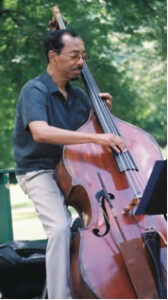
For music
For music festivals
For concert information
For arts/theatre
UCONN concert series
New England Concerts etc.
Nursery Staffed for Sunday Services

A reminder: the nursery is available when your child is restless or unhappy during service. You may not mind your child’s crying, but others would like to hear the service.
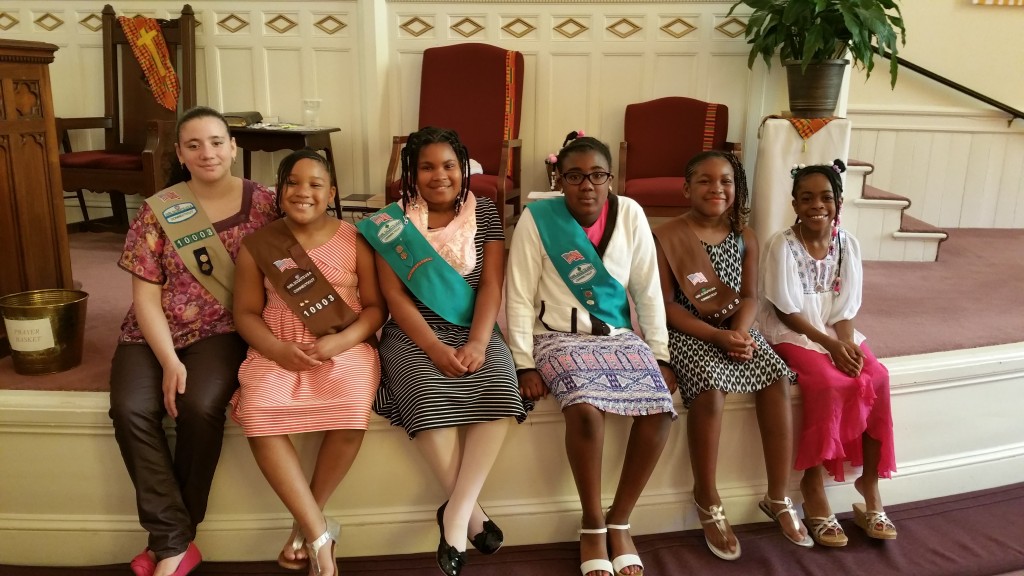
Don’t forget, Girl Scout Troop 10003 meets on 2nd and 4th Sundays from 1 – 2:30pm.

On Tuesday, Wednesday, Thursday and Friday the Hartford Rescue Mission serves a free meal in Fellowship Hall. Call 860-241-0686 for information.
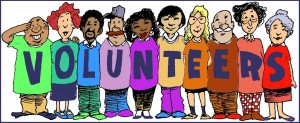
If you are willing and able to drive the van one Sunday per month or every 6 weeks, please let us know. See one of the deacons for details. You are needed for this important ministry.
If you can help one Sunday per month as an usher, please see Louis Alexander . All that’s required is a smiling face and warm welcome to all who come into this house of worship. It’s a great way to serve the church and get to know others.
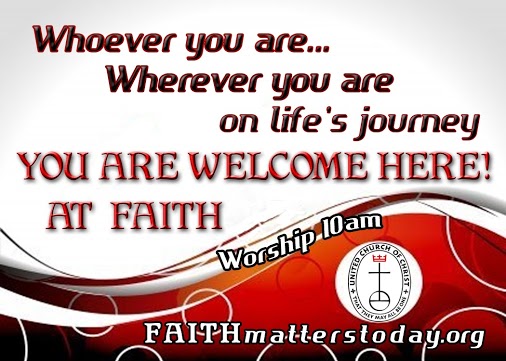
Remember our Sick and Shut-ins
Don’t forget to send a card or note.
Esther (Jackson) Kyttle Wintonbury Care Center in Bloomfield
Deacon Margaret Robinson Hebrew Home in West Hartford
Robert Ryles Home

89 total views , 1 views today
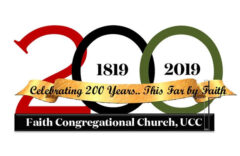
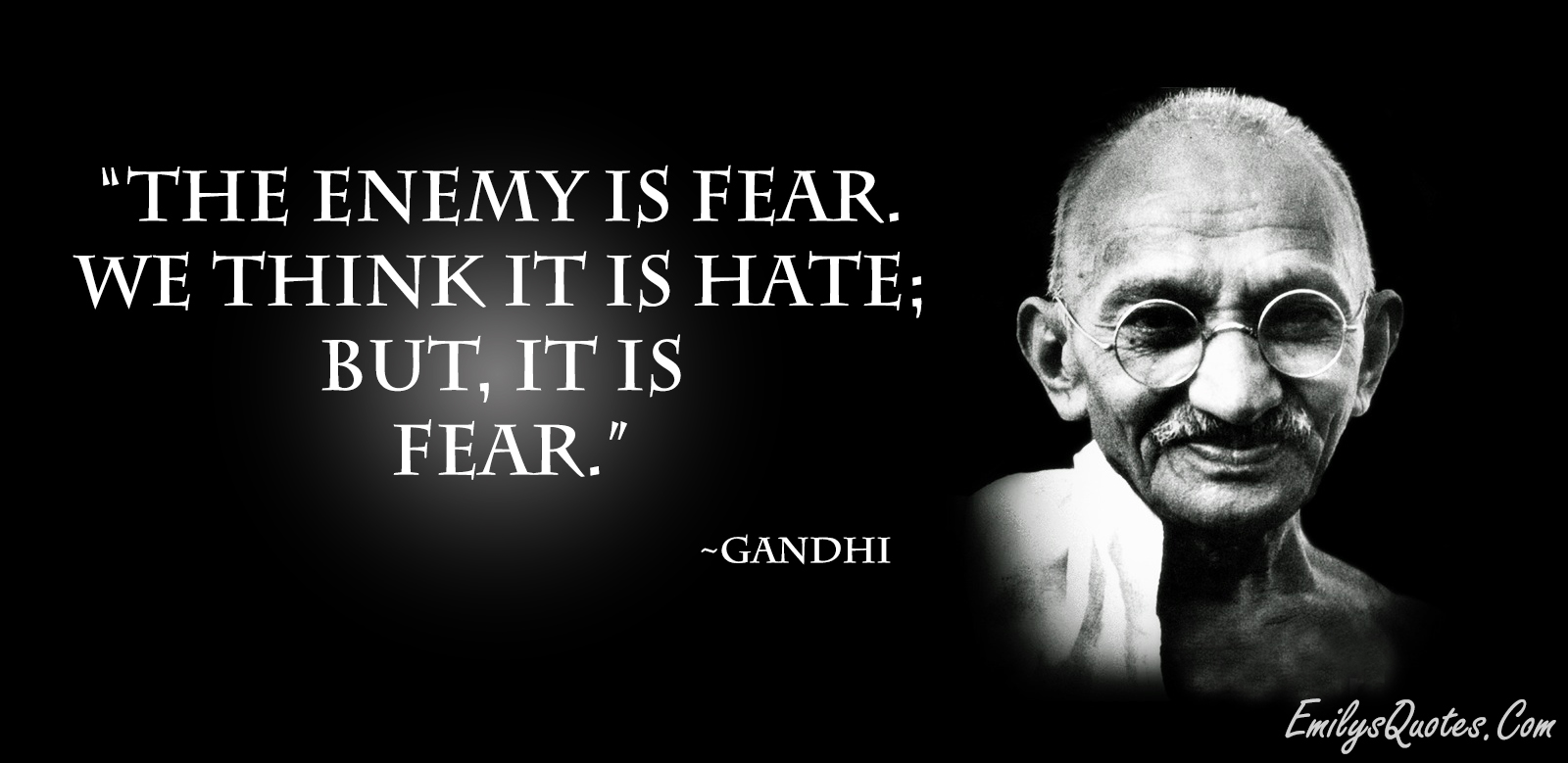


 The Church and the End of Racism
The Church and the End of Racism

